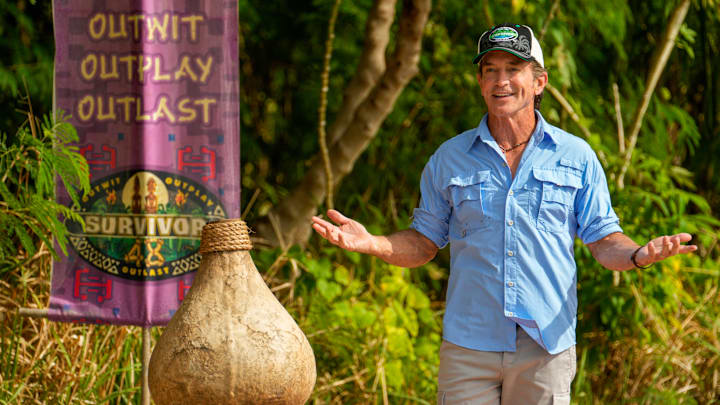Survivor has been around for 48 seasons and has gone through cycles of different gameplay mechanics and formats. One element constantly being assessed is the format of reward or immunity challenges. The frequency of the reward challenges is one aspect that has bounced around a bit, but there is another that is even more of a topic of discussion: the types of challenges.
In the early days of Survivor, challenges were often brutal and physical. Another common element was the feature of many one-on-one or two-on-two type competitions, where players can score a point for their tribe each time or move on to the next round in individual competitions. This challenge genre has remained popular in many international versions, especially Australian Survivor, but they have become scarce in the US version.
Jeff Probst explains philosophy on challenges

Fans have been vocal about their likes and dislikes of the current iterations of Survivor. Whether it be advantages, tribe size, fire-making, or final tribal council format, fans have a lot to say about the game they love. One other element frequently gets brought up: diversifying the challenges. Specifically, many fans want to see head-to-head challenges make a return.
That said, fans hoping that production will listen to this request may be disappointed. On this week's episode of On Fire with Jeff Probst, the official Survivor podcast, Jeff shared with fans the logic behind moving away from those types of challenges, and he does not appear to be inclined to change it back anytime soon.
A fan wrote in asking about these head-to-head challenges, and Jeff explained the change. In part, he explained, "Survivor could have gone the root of The Challenge show and made it more physical and all of that. We just took a different approach."
"There was a period of three or four seasons where we said, 'hmmm, are we pushing a little too much on the physicality?'" Jeff said. "Especially in the one-on-one or two-on-two challenges, because we don't want the challenges to be so physical that it is likely somebody will get hurt. It's about balance and point of view, and we're doing our best to manage it."
A lot of this makes sense. Player injuries impact the game in ways that the format was not intended. Winning Survivor is a balance of skill and luck, and injuries and unpredictable losses can affect that, no matter what. Ideally, though, the social aspect and navigation play the crucial role. Injuries cannot be completely avoided, but it is important to keep players healthy and make sure players of all ages and backgrounds have the ability to compete.
Jeff says the decision is not only about the physical injuries

Co-host Rachel LaMont, winner of Survivor 47, chimed in. She shared that "Sumo at Sea" was one of her most enjoyed challenges, and that it seemed like it was unlikely to hurt players. Jeff then told Rachel that "Sumo at Sea" is actually one of the challenges that caused them to rethink the format, surprising Rachel.
Jeff explained the reasoning soon after.
"The one-on-one-ness of it got into something really primal inside people, and it became a little more like angry, like 'I'm gonna knock you off'. It added a layer of dynamic that just... takes your game in a certain direction. That's just not the show we're looking for."
It appears that the sort of "beast" anger mentality that goes into the challenges is also something that Jeff wants to push back on. The show wants to focus more on natural emotions as opposed to manufactured ones based on a specific type of competition. He does state that competition and excitement are important, but that Survivor does not need the other feelings associated with head-to-head matches.
As much as the head-to-head, pure brute force competitions give storylines to fans and make for exciting and dramatic television, do not expect them back anytime soon. It appears Jeff and production have a firm stance on the matter, and they do not want to budge.
Maybe for Survivor 50, fans can vote some of these infamous challenges back, but until then, expect a heavy dose of puzzles, endurance, and obstacle courses as is the current status quo.
